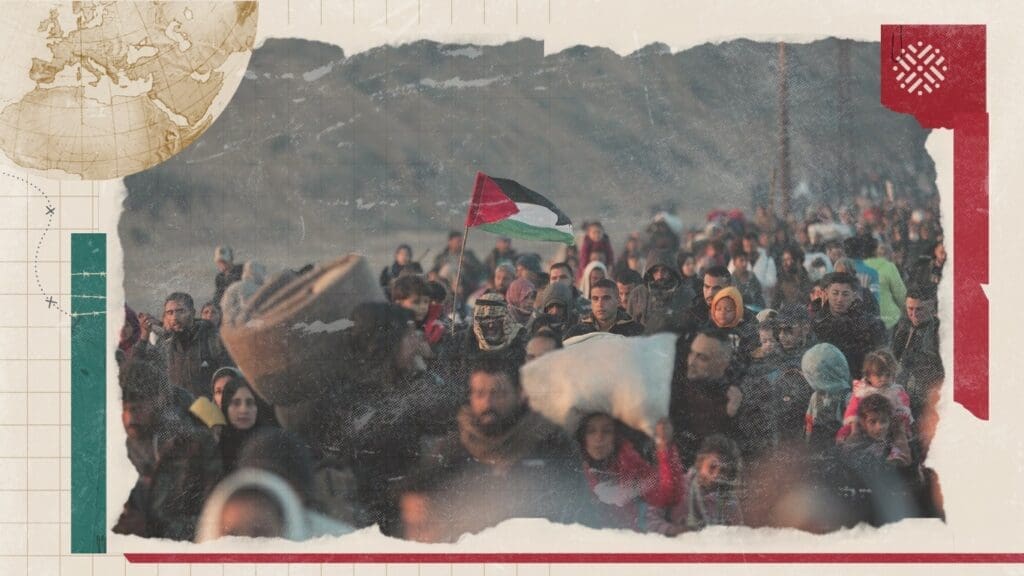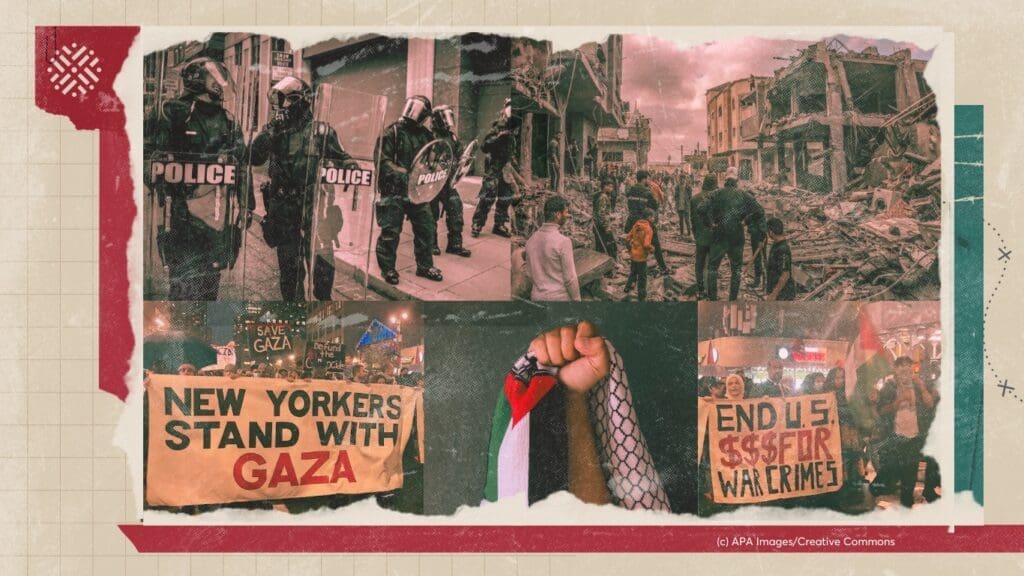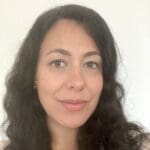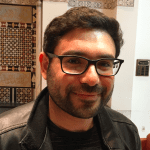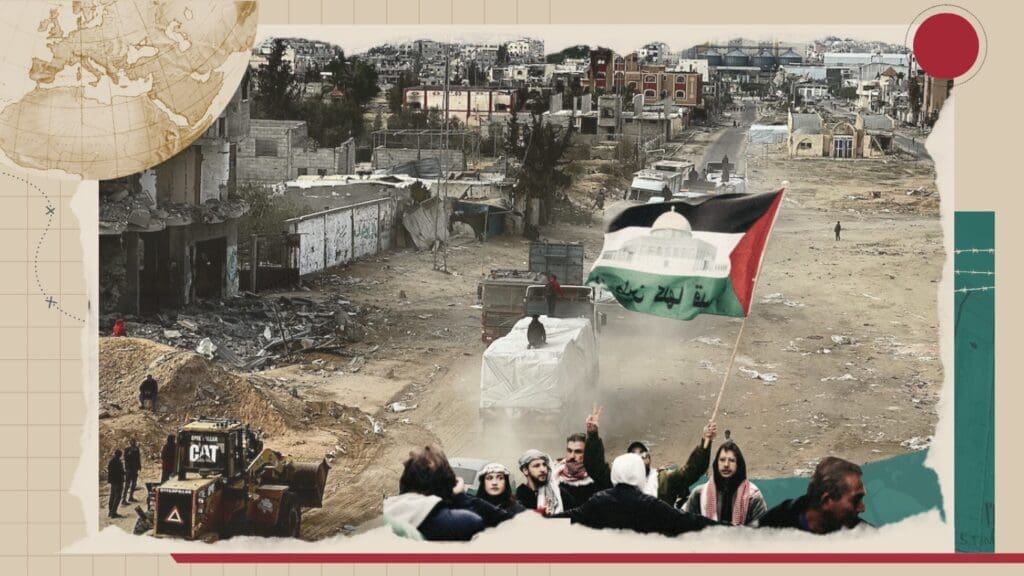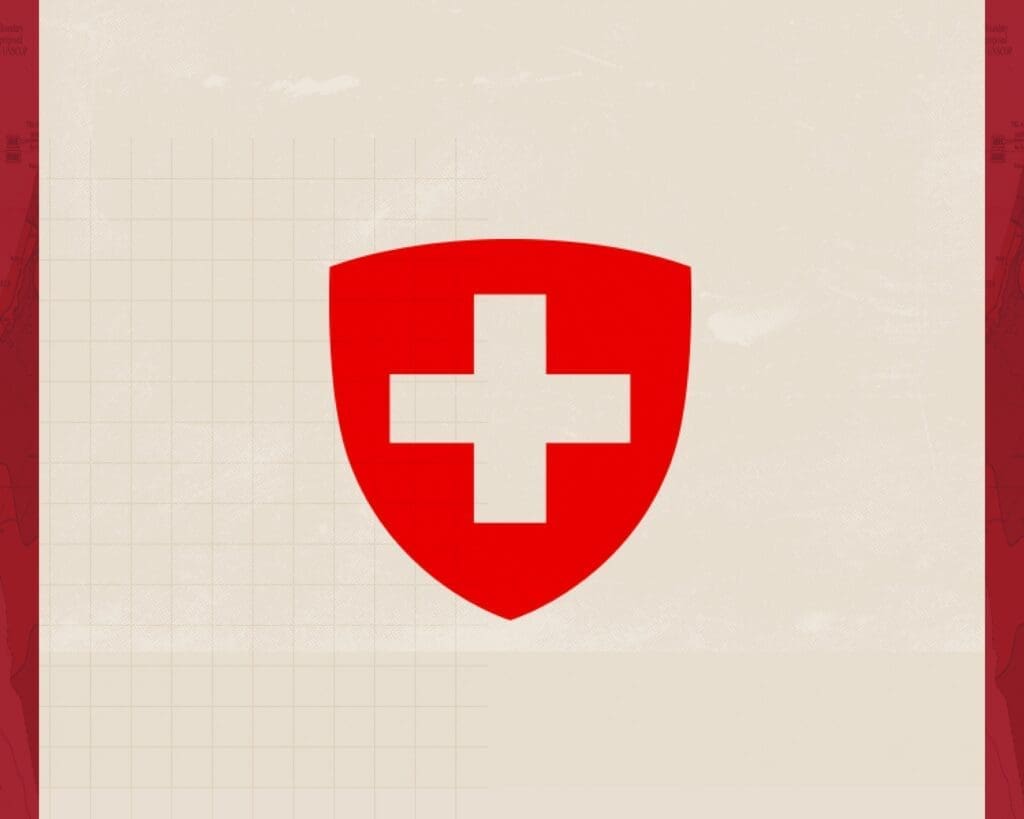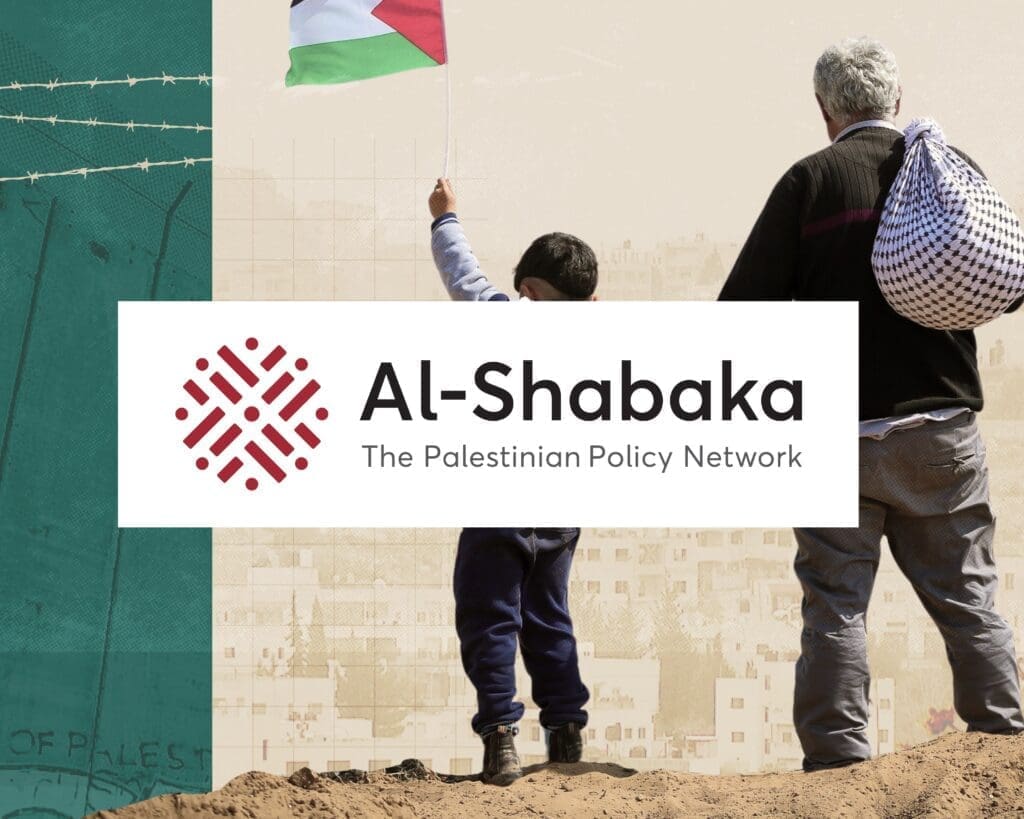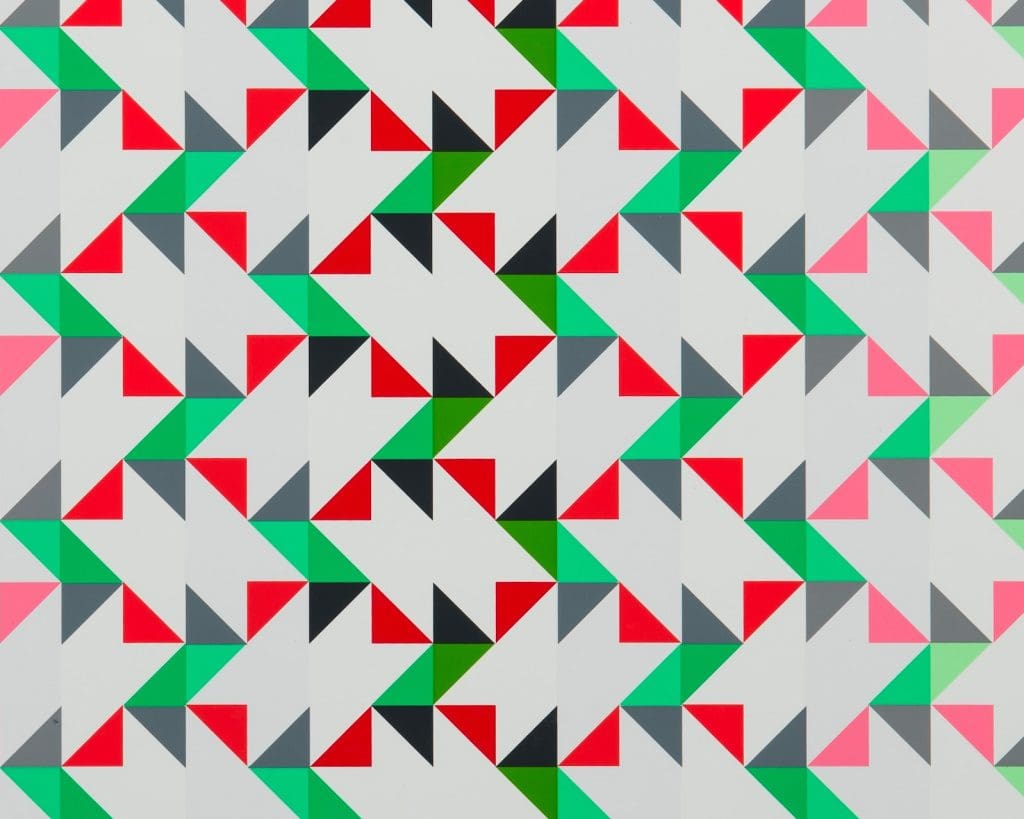
The Palestinian artist Kamal Boullata has created a work of art dedicated to Al-Shabaka, the global Palestinian think tank. All proceeds of its sale are going to support our mission.
Titled Qasida, the print’s geometric components mirror the rhythmic structure of the classical Arabic ode. The silkscreen is hand-printed on acid-free MultiArt Silk, 400 gr. and produced in the studios of Martin Samuel in Berlin in a limited deluxe edition of 50, titled, dated, numbered and signed by the artist with 10 artist’s proofs noted in Roman numerals.
To acquire a copy of this exclusive print please email [email protected]

About Kamal Boullata
The award-winning Palestinian artist and writer Kamal Boullata was born in Jerusalem. In her review of his book Palestinian Art From 1850 to the Present, the British art critic Jean Fisher wrote, “Kamal Boullata’s magnum opus stands alongside the works of Mahmoud Darwish and Edward Said as a testimony to a Palestinian generation that refused to relinquish its faith in a just and radical humanism.”
Public collections holding Kamal Boullata’s paintings, prints and artist books include the British Museum, London; the Museum of Modern and Contemporary Arab Art, Institut du Monde Arabe, Paris; Patronato de la Alhambra Islamic Museum, Granada; Khalid Shoman Foundation, Amman; New York Public Library, New York; Bibliothèque National de France, Paris; Bibliothèque Louis Notari, Monaco; Barjeel Art Foundation, Sharjah; Zimmerli Art Museum, Rudgers University, New Brunswick, NJ; Birzeit University Museum, Birzeit; Library of Congress, Washington, DC; Centre Canadien d’Archtecture, Montreal.
About Al-Shabaka
Al-Shabaka: The Palestinian Policy Network was founded in 2009 and is an independent, non-profit 501(c)(3) organization. We draw upon the knowledge and experience of the Palestinian people, whether under occupation, in exile, or in Israel, so as to engage the broadest spectrum of perspectives in debate on policy and strategy to promote freedom, justice, and equality. We communicate our findings and recommendations to policymakers, civil society, and the media worldwide.
Al-Shabaka: The Palestinian Policy Network is an independent, non-partisan, and non-profit organization whose mission is to convene a multidisciplinary, global network of Palestinian analysts to produce critical policy analysis and collectively imagine a new policymaking paradigm for Palestine and Palestinians worldwide.



